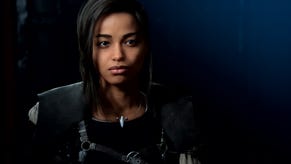Forspoken review - a slow burner that's not without its charms
A little Frey to go.
Forspoken doesn't leave a great first impression. The restrictive opening chapters, poor pacing, and that PS5 demo do it no favours, and things didn't click until the campaign was nearly over. I might've stopped sooner on a casual playthrough - but I'm glad I saw it through. Once things did click, I couldn't turn away, and since Forspoken isn't a long action-RPG it is at least one worth sticking with once you start - this is the type of game where you won't always find the smoothest journey, but the build-up eventually pays off.
Playing as Frey Holland, Forspoken begins with a depressing opening chapter that makes her rough upbringing immediately evident. Soon enough, she's transported into a strange fantasy land called Athia with no way home, paired with a wisecracking bracelet called Cuff. Forspoken doesn't open up for several chapters, but once it does, you'll confront the four Tantas, a powerful group of matriarchs that rule each of Athia's regions. Once benevolent sorceresses, they've each succumbed to madness and terrorise this land, leaving us to hunt them down.
Following a rather simplistic stealth mission, Frey's soon free to explore Cipal, a central medieval city that serves as your hub and humanity's last hope. It's a refuge safe from an ever-spreading corruption long called the Break, which affects everything it touches except Frey. With the wildlife and corrupted humans ready to kill on sight, each region presents its own challenges, and Frey doesn't need conventional weaponry.
Armed with magical spells, Frey's moveset mostly sticks to ranged attacks, backed up by support magic like binding enemies with weeds to slow them. Defeating a Tanta grants new ability sets that you can quickly swap between mid-battle, and spells are upgradeable through their respective skill trees. Slashing through these corrupted foes with Tanta Sila's melee abilities was a particularly satisfying highlight. In some respects, combat feels like a natural extension of Luminous' previous game, Final Fantasy 15, but this isn't another road trip with the boys. Frey travels alone, switching out spells instead of weapons, yet basic combat remains distinctly familiar. Running up to enemies across Athia's open world, pulling off real-time combos remains stylish, and that feeling only grows upon obtaining new abilities
That's somewhat let down by the controls, though. I kept instinctively wasting support magic spells by pressing the left trigger, thinking it'd help aim my shots. Instead, you'll fire automatically at an enemy you've locked onto with R3, which I eventually memorised, but this isn't intuitive. Giving me menus mid-battle to choose spells feels clunky, though you can activate automatic spell switching to replace spells currently in cooldown.
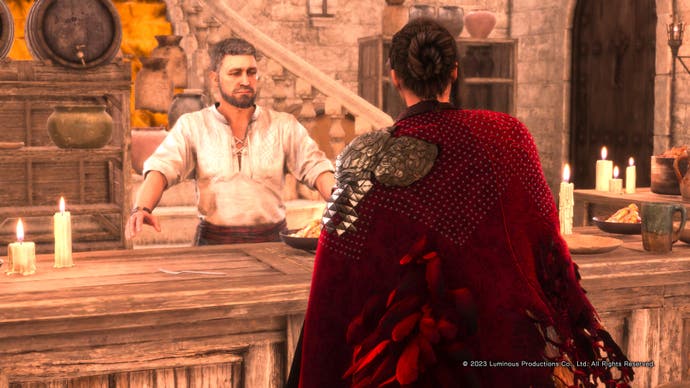
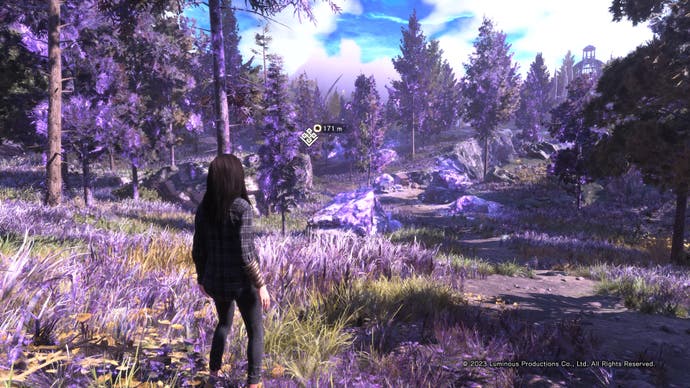
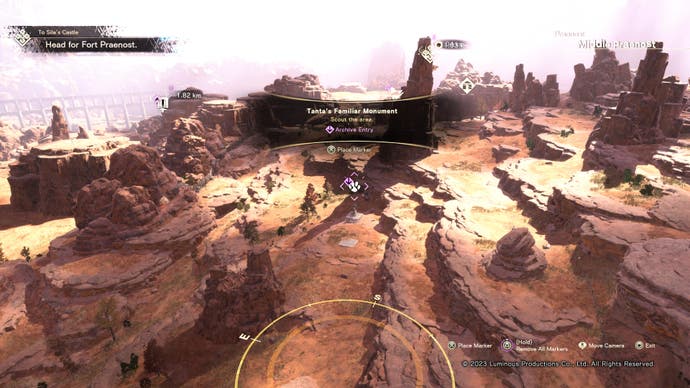
What will undoubtedly prove divisive is the dialogue, but it's not the spoken disaster some assume. Frey's new to this world, she's suddenly taking down monsters with spells; who wouldn't feel excited, scared, or some combination of both? What seems like an over-the-top reaction is often reasonable, even if it borders on Whedonspeak. That said, Cuff's quippy combat dialogue gets annoying fast, attempting to add a light touch in ways that wouldn't feel out of place in a Marvel movie. Like all comedy, that's subjective, but I'm not a fan. Thankfully, you can minimise his voice lines in the settings, and once I did that I didn't look back.
Despite those problems, there's a few moments where I enjoyed the duo's banter, and Cuff's not the worst company when exploring Athia. From the heavy forests of Junoon to Visoria's great plains, there's a ruined beauty to this open world and plenty of things to do. Frey can take shelter and craft items across different refuges, photograph specific landscapes, and even befriend the Tantas' familiars (magical cats). Labyrinths offer a short dungeon packed with a mini-boss, while events like Flashbacks and Elimination add different twists to combat sequences, like killing all foes in a set time. Accessibility options like custom button mapping, adjustable text sizes, and colour vision deficiency settings boost this experience further.
Exploration feels energetic thanks to Frey's 'magic parkour,' used to speed through environments quickly and dodge attacks. Traversal across Athia feels nice, but there's a more significant problem. You've got all these events across an open world and it rarely feels more meaningful than map padding. Labyrinths often hide interesting lore, but otherwise, I just didn't care and focused on the main missions. Even then, I struggled to shake my initial impressions.
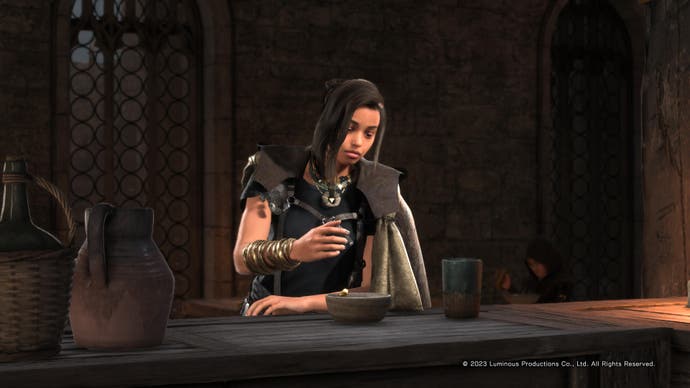
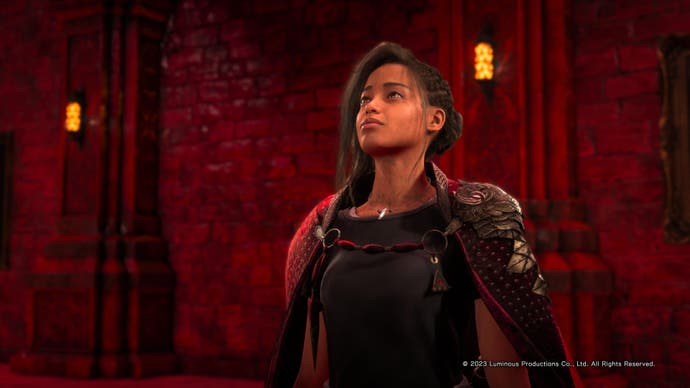
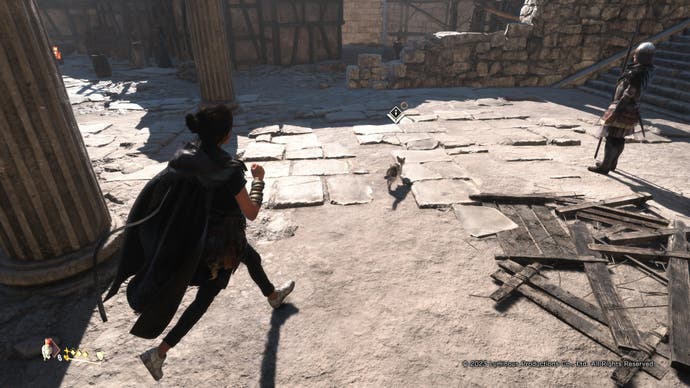
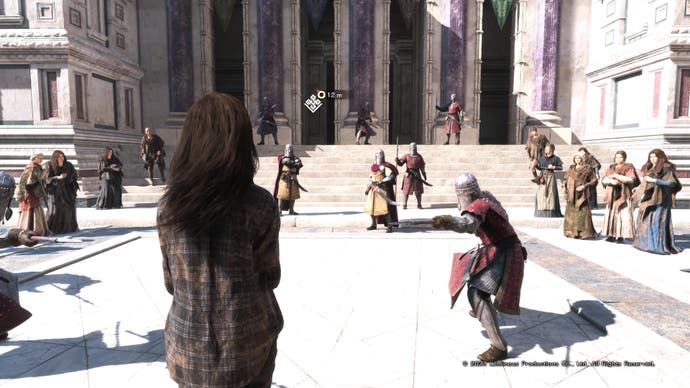
Frey, at least, is a great character, even if she's not always the most likeable person. You'll find moments where she seems self-absorbed, inconsiderate, and unwilling to view the bigger picture, but I never hated her. Frey's a loner, and that's a consequence of her awful upbringing; she's spent a long time feeling unloved and discarded. When her entire life gets upended and she's asked to save a world she's never known, the pressure hits.
All together it means Frey is complex, flawed and - even if you don't like her dialogue - she feels human. I enjoyed watching her character develop as she finally learns to let other people in, breaking down those internal walls and realising her self-worth. This isn't perfect though, and the writing has some misses. Luminous giving her a criminal backstory for thefts and gang dealings is a highly questionable choice that feels lazy. Even then, it doesn't stop her from becoming one of the more genuine protagonists I've seen recently, capped off by an emotional ending.
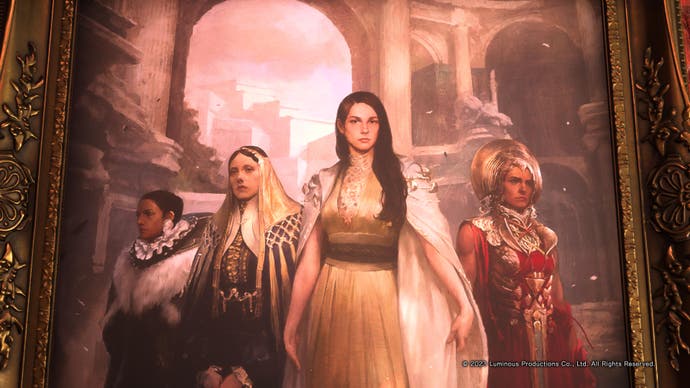
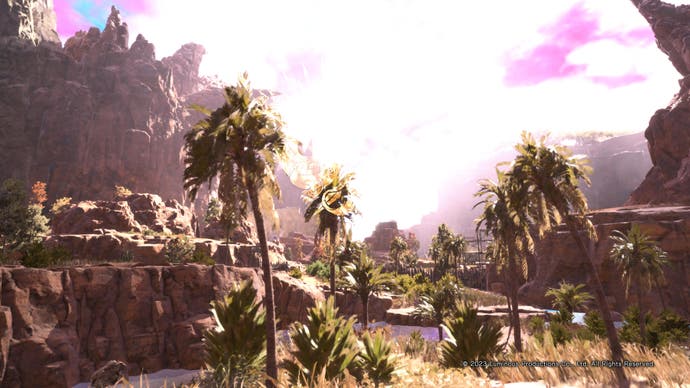
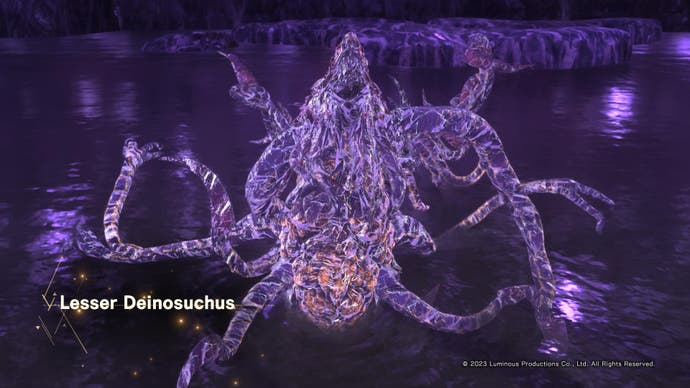
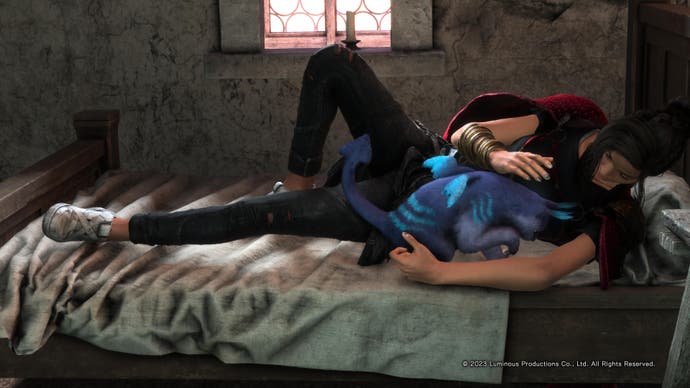
Unfortunately, this story needs time to get to that ending, and I only felt invested once this campaign was nearly over. The upside is it isn't so bad considering the main story's relatively short. You can beat Forspoken in roughly 12 hours, provided you ignore its side missions and post-game content. A far cry from the 30-40 hours previously promised, though it never feels overly drawn out. In some ways, it's your typical save-the-world premise, but Forspoken equally builds a very personal story about Frey's life, one that ultimately resonates. I was intrigued by the worldbuilding too, and Athia's history before the Break is well documented. You'll find diary entries detailing the fates of each region's residents, a war long passed, and more. Plenty to take in, though these can be easily missed.
What you won't find is an exploration of black culture comparable to, let's say, Marvel's Spider-Man: Miles Morales. Instead, Forspoken goes to great pains in highlighting classism, and that's especially prominent in an early side mission. Frey's given a tour of Cipal by an eager young blacksmith, which goes well until you reach the more affluent upper city. It's immediately apparent that neither of you is welcome by the residents. "What business does someone like that have in this part of the city?" one whispers, while other residents rightfully complain about how the upper city receives better food than them. The class divide gets consistently laid bare, highlighting these tensions well.
What's clear is there are highlights here - I had my doubts going into Forspoken, and I came away pleasantly surprised. Despite misgivings about Frey's backstory and the divisive dialogue, Luminous has created one of the more engaging heroes I've seen for some time, even if she shuns that title. This story takes time to get going, and while the writing doesn't always land, there's plenty to enjoy even if the numerous ups and downs make Forspoken hard to universally recommend. Still, thanks to its robust character development, detailed worldbuilding, and stylish combat, there are elements here that are still worth a look
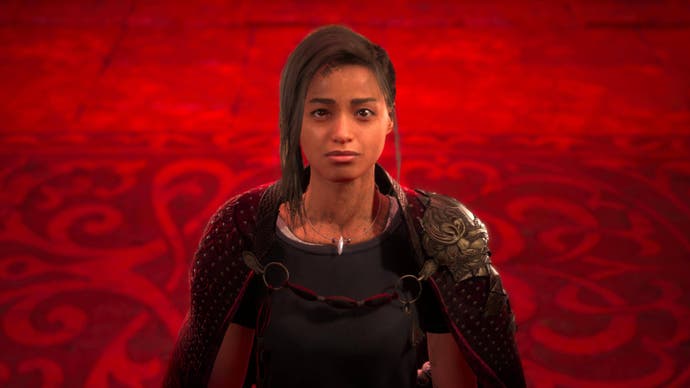


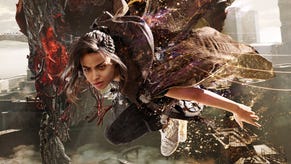

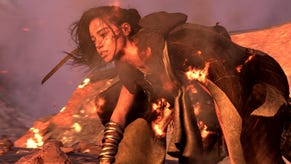
.png?width=291&height=164&fit=crop&quality=80&format=jpg&auto=webp)

